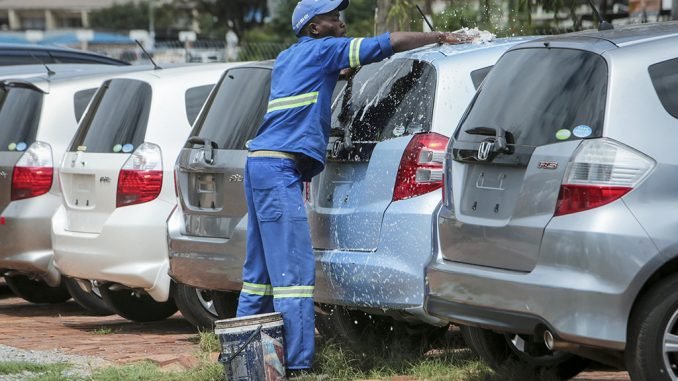
Mombasa, Kenya | URN | Uganda National Bureau of Standards (UNBS) has given importers a one-month waiver of the surcharge on goods that are subject to the Pre-Export Verification of Conformity (PVoC) but have not undergone it.
This is for the period between March 25 to April 24 for importers who could have failed to have their goods inspected due to various reasons related to COVID-19.
Under the PVoC policy, the goods are supposed to be tested for standards like road-worthiness for vehicles, before they are shipped into the country. If the import is registered, the process costs the importers 0.45 per cent of the Free-on-Board value or the value of the goods to be shipped, before adding the freight and insurance costs, while if the import is not registered, it costs 0.5 per cent.
For Used Motor Vehicles, it depends on the country of origin. In Japan, it costs USD 140, while those from the United Kingdom are charged USD 200. If it’s being imported from South Africa, it costs USD 220 and from the UAE the cost is USD 125. To other countries and destination, it costs USD 140. The policy imposes a 15 per cent surcharge on any goods that have not undergone this inspection.
It is now being lifted for the period between March 25 to April 24 for importers who could have failed to have their goods inspected due to various reasons related to COVID-19.
“Following challenges caused by the COVID-19 pandemic, a number of importers have engaged UNBS on their consignments which are currently stuck in the Bonds and unable to finalise the clearing process due to financial constraints,” says a statement by Acting Executive Director, David Livingston Ebiru.
He says that in consideration of the above challenges, UNBS is rolling out a short term intervention of self-disclosure by waiving off PVOC surcharges for importers whose goods are currently at the bond or at Mombasa port. The amnesty also covers those currently in transit or at sea.
Read Also: Ugandan gov’t probes how Bobi Wine’s bullet-proof car was procured, transported and cleared
However, the affected importers are given conditions including fulfilling other standard and import obligations and committing to meet PVoC requirements in the future. “They are required to sign a commitment form to ensure future compliance with PVOC requirements and their goods will be subjected to compliance inspection and testing to ensure they meet quality and safety standards requirements,” he adds.
The importers will also commit to abide by the normal procedure and to subject future consignments to Pre Export Verification of Conformity (PVoC) after this waiver period. If this fails, the goods are either re-exported or destroyed by the owner, or by the authorities at the cost of the importer.



